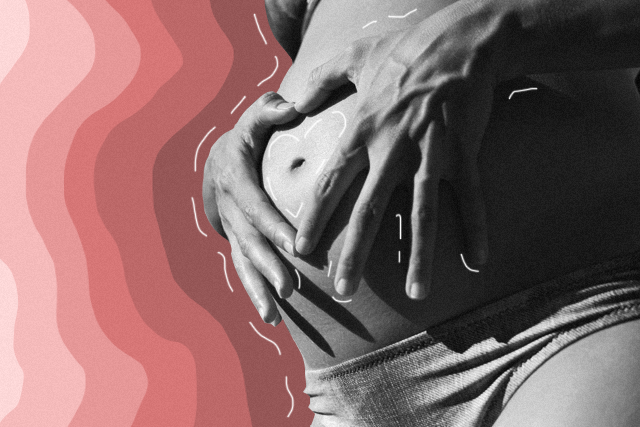
This column may contain strong language, sexual content, adult humor, and other themes that may not be suitable for minors. Parental guidance is strongly advised.
In recent months, significant strides previously thought impossible were made in Argentina and Ireland. Both countries, staunchly Catholic, overwhelmingly supported the decriminalization of abortion.
Prior to the referendum in Ireland last May, abortion was permissible only when the woman’s life was at risk, but not in cases of rape, incest, and fatal fetal abnormality. The results of the referendum, which saw a landslide victory in favor of overturning the abortion ban, 66.4 percent—33.6 percent, mean that the current law granting “an equal right to the mother and the unborn,” will be repealed and replaced by a more liberal one.
The implications of this are nothing short of seismic in a nation where Catholicism had such a stranglehold on 20th century Irish society that “fallen women”—young girls who got pregnant out of wedlock and clearly did not have the resources to travel to neighboring countries to get an abortion—were shunned by their own families and banished to institutions run by the church where the conditions were often horrific. Not that the women expected to live in luxury, seeing as they were considered to have brought shame to their families and were shunned by society. Of course the boys that got them pregnant often faced no consequences for their actions.
But what awaited the women in the “mother and baby homes” as well as that other infamous church-run institution, the Magdalene laundries, was a life of physical abuse, estrangement from their children, who were often put up for adoption against their mothers’ will, and forced labor washing clothes and linens. The children who remained grew up in these institutions and were subjected to the same harsh treatment as their mothers. A Magdalene child put up for adoption in the US, Mari Steed, who co-founded the group Justice for Magdalenes, said in a Vox interview that “the nuns felt we were all inferior due to being born out of wedlock.”
Ireland is not the first nation to claim to uphold religious values while systematically and unconscionably trampling on them. Steed said of the nuns who ran the institutions—with the support of the state, mind you—that “they may have started with the best of intentions, but by the very nature of Irish society and repression of women’s sexuality, they began to see these women as less than human, and treat them that way. That’s where we’re seeing a lot of the abuse, and really torture, at the end of the day.”
The Taoiseach, or Prime Minister, of Ireland, Leo Varadkar, acknowledged this shameful past and celebrated the repeal decision, calling a woman’s right to make her own choices and decisions nothing less than a “quiet revolution.”
He added, “It’s also a day when we say no more. No more to doctors telling their patients there’s nothing that can be done for them in their own country, no more lonely journeys across the Irish Sea, no more stigma as the veil of secrecy is lifted and no more isolation as the burden of shame is gone.”
Argentina has long shed the stigma surrounding unwed mothers, prevalent across all ages and social and economic classes. However, teen pregnancies are more common among the poor; women of better means have the luxury of deciding when they want to have children, and do not necessarily want to marry the father(s) of their children.
Even as every one in six children is born to a teenage mother, supporters of the abortion ban, such as Vice President Gabriela Michetti argued that making abortion legal was unnecessary because Argentine women already had “a wonderful pro-life option” in cases of unwanted pregnancies. “If a girl is supported and has all the things that she needs and can give birth, she can give this child to the multitude of couples, single people, and families that want to adopt and particularly want to adopt newborns.”
Perhaps, but this kind of reasoning prioritizes the unborn child over the well-being of the mother—physically, emotionally, and mentally. A girl of 14, despite all the “support” from her family and her community, really has no business having a child of her own at that age. Neither does a girl of 15 or even 18. Studies have shown that teen unwed mothers end up having to abandon their studies in order to care for their children, thereby diminishing their chances of getting a degree and seeking gainful employment. The cycle of poverty continues.
Last June, the Argentine lower house approved a bill legalizing elective abortion in the first 14 weeks of pregnancy. Despite the relaxed mores surrounding single motherhood, this is still a historic step for the country, and the bill faces a tough fight in the Senate. Six previous bills have been proposed in the last 13 years, and this is the first one to pass the House.
The existing law currently allows abortion only in cases of rape, incest, and severe situations that put the mother’s life and health at risk. As The Independent noted, “If women need an abortion, there is a legal hurdle: applying for permission from a judge who can either grant or deny it. There is often no guidance for judges or abortion providers, particularly in rural districts, about what they are legally obligated to do. It leaves the approval of abortions up to chance, depending on where the woman lives. Critics have said this adds an unnecessary burden on the women, particularly poor women, and adds to delays in getting the sometimes time-sensitive procedure.”
Legalizing abortion will also dramatically reduce deaths due to illegal or botched abortions, which is the leading cause of maternal mortality in Argentina, where 250 deaths were reported in 2016, 43 of which were caused by abortions. A Vox report said that according to the Ministry of Health, “500,000 clandestine or illegal abortions are performed there each year in a population of approximately 44 million people.”
The pro-life debate rages unabated in the US where the landmark Roe vs. Wade ruling seriously risks being overturned by the appointment and confirmation of a conservative justice to the Supreme Court. Conservatives cling to the sanctity of life argument, yet in the light of the illegal immigration scandal besetting the Trump administration, in which children, including babies and toddlers, are ripped from the arms of immigrants seeking political asylum at the US border, and thrown into separate detention facilities, one wonders if pro-life supporters really care that much about the lives of children already born. It would seem, as some have argued, that they really are, at the end of the day, pro-fetus rather than pro-life because they couldn’t give a f*ck about the fetus once it’s born.
We’re no better here in the Philippines where abortion is illegal without exceptions. As our Constitution states, “The State recognizes the sanctity of family life and shall protect and strengthen the family as a basic autonomous social institution. It shall equally protect the life of the mother and the life of the unborn from conception.”
Mandatory imprisonment awaits women—and those who assist them—who undergo abortion. Article 258 of the Revised Penal code in fact mandates a higher prison term for the woman or her parents if the reason for the abortion is “to conceal [the woman’s] dishonor.”
What if that “dishonor” were the result of rape, or incest? Wouldn’t it be more humane to give a woman the choice to terminate the pregnancy under those grounds? The World Health Organization estimates that up to 800,000 abortions are performed illegally in the Philippines each year; according to WHO, 70 percent of unwanted pregnancies end in abortion. The reason for the abortions are mainly economic: “often where a woman already has several children and cannot care for another.”
There are doctors who secretly perform abortions in clinics, at great risk, but the cheaper alternative for many Filipinos comes in the form of abortifacients available on the black market which—surprise, surprise—tends to be located in makeshift vendor stalls near churches.
Unfortunately, with the Talibanistic mentality of many a pro-life defender in this country, anything can be considered an abortifacient, including contraceptive patches. Such short-sighted intransigence. Suffer the little children indeed. And how they suffer, along with their parents and the rest of the country that can barely manage to feed, clothe, house, and educate its young.
Access to contraception and legal abortions is the safe, dignified and humane way to go. Just ask Ireland and Argentina.
B. Wiser is the author of Making Love in Spanish, a novel published by Anvil Publishing and available in National Book Store and Powerbooks, as well as online. When not assuming her Sasha Fierce alter-ego, she takes on the role of serious journalist and media consultant.
For comments and questions, e-mail [email protected].
Disclaimer: The views expressed here are solely those of the author in her private capacity and do not in any way represent the views of Preen.ph, or any other entity of the Inquirer Group of Companies.
Art by Marian Hukom
Follow Preen on Facebook, Instagram, Twitter, YouTube, and Viber
Related stories:
Pres. Duterte might have a point about the Church
If men needed to take birth control, the TRO would be lifted ASAP
How these cartoons are tackling social issues like abortion and sexual assault
Birth control shouldn’t be reduced to a game of politics


